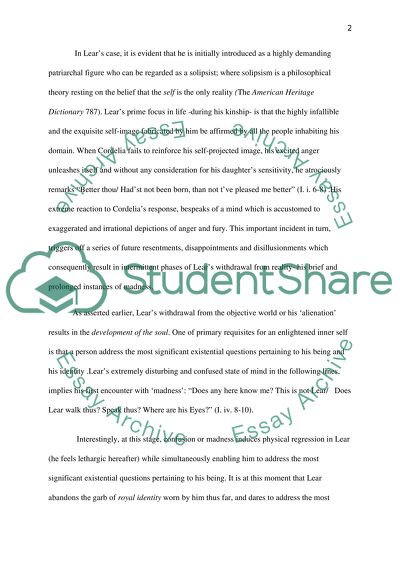Cite this document
(“The Development of King Lears Madness Essay Example | Topics and Well Written Essays - 1250 words”, n.d.)
Retrieved from https://studentshare.org/literature/1419833-the-development-of-king-lears-madness
Retrieved from https://studentshare.org/literature/1419833-the-development-of-king-lears-madness
(The Development of King Lears Madness Essay Example | Topics and Well Written Essays - 1250 Words)
https://studentshare.org/literature/1419833-the-development-of-king-lears-madness.
https://studentshare.org/literature/1419833-the-development-of-king-lears-madness.
“The Development of King Lears Madness Essay Example | Topics and Well Written Essays - 1250 Words”, n.d. https://studentshare.org/literature/1419833-the-development-of-king-lears-madness.


